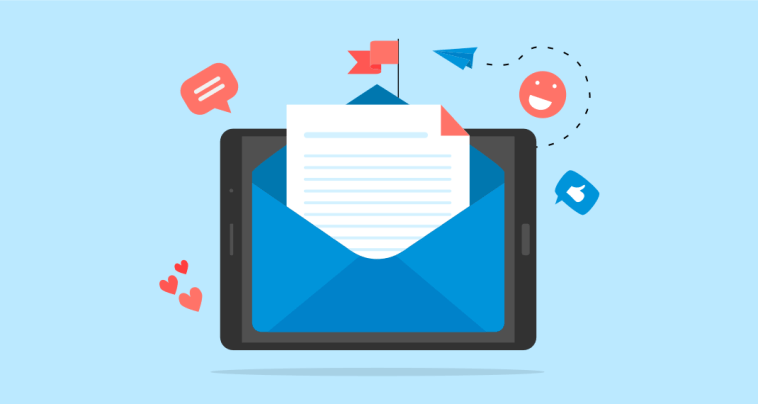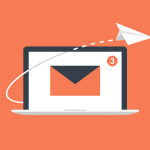Introduction.
Building trust through email marketing isn’t just a “nice to have”—it’s an essential part of connecting with your audience and building long-term relationships.
Trust is what keeps customers opening your emails, engaging with your content, and, most importantly, feeling good about the relationship they have with your brand.
And while it might sound straightforward, trust-building requires more than just sending promotional emails or regular updates.
It’s about creating genuine value and delivering consistent, authentic communication that resonates with your audience.
Think about it: your inbox is probably full of unread emails right now. So, what makes you open the ones you do?
Typically, it’s emails from companies or individuals who’ve proven reliable, shared useful information, and been respectful of your time. That’s trust at work.
In this guide, I’ll walk through strategies you can use to foster trust with your subscribers through email marketing.
This article will also explore the advantages and potential downsides of each approach so you can tailor a plan that works for your audience.
Why Trust Matters in Email Marketing
Email marketing remains one of the most effective ways to connect with customers, with some studies showing an average ROI of $42 for every $1 spent.
But here’s the catch: people don’t engage with emails they don’t trust. Without a solid foundation of trust, those carefully crafted messages end up unread, ignored, or marked as spam.
Trust in email marketing plays a key role in:
- Brand loyalty: When customers trust you, they’re more likely to come back.
- Higher engagement: Trust increases open and click-through rates.
- Better deliverability: Engaged, trusting customers are less likely to mark your emails as spam, improving your overall sender reputation.
Key Strategies for Building Trust in Email Marketing
- Personalization without Being Intrusive Personalization is about showing your subscribers you understand them, but it’s important not to cross into “creepy” territory. Start with the basics, like addressing them by name and segmenting your lists based on interests or behaviors. Avoid going overboard with overly personal details unless they’ve explicitly shared that information with you.
- Consistency and Transparency Let subscribers know exactly what they’ll get from you and stick to it. If you promise weekly tips, make sure to send them consistently. Transparency also means making your content relevant to the sign-up context: if they joined for product updates, send them updates—not random promotional offers. Clear communication helps establish you as a dependable, straightforward source of information.
- Provide Value with Every Email Value doesn’t always mean a discount or promotion. It could be useful information, tips, or resources that help solve your subscribers’ problems or make their lives easier. If your audience can consistently find valuable insights in your emails, they’ll look forward to opening them, which naturally builds trust over time.
- Simple and Clear Language Using clear and straightforward language shows that you respect your subscribers’ time and want to communicate openly. Complicated language or jargon can make emails feel less approachable, and readers may feel that you’re hiding behind “sales speak.”
- Request Feedback and Show You Listen Asking for feedback is a great way to show that you care about what your subscribers think. Simple surveys, polls, or asking them to reply directly can open communication channels and let your audience know you value their opinion. When you act on feedback, even something small, mention it! This shows you’re paying attention and value their input.
- Optimize for Mobile and Accessibility Over 40% of emails are opened on mobile devices, so making sure your emails look good and are easy to read on mobile builds trust in your brand. Accessibility, like adding alt text to images and using readable fonts, also shows you care about making your content available to everyone, building respect and inclusivity in your communication.
Pros and Cons of Trust-Building Strategies in Email Marketing
Pros:
- Higher Engagement Rates: Subscribers are more likely to open and click through emails from a trusted sender, leading to higher conversion rates.
- Reduced Unsubscribes and Spam Reports: Trust can keep people from unsubscribing or marking emails as spam, which helps protect your sender reputation.
- Better Customer Relationships: A trusting relationship can turn one-time buyers into repeat customers who advocate for your brand.
Cons:
- Requires Consistency and Patience: Building trust is a long-term effort and needs consistency. You won’t see results overnight.
- Potential for Over-Personalization: Attempting too much personalization can sometimes backfire, especially if subscribers feel you’re collecting too much data.
- Higher Standards: Once you’ve established trust, customers have high expectations, so any perceived slip-up can impact their trust.
FAQs
Q: How often should I send emails to build trust without overwhelming my audience?
A: Aim for consistency over frequency. If you promise weekly updates, stick to weekly. If monthly works best for your audience, go for that. The key is to set clear expectations and deliver on them.
Q: What’s the best way to measure trust in email marketing?
A: High open and click-through rates are good indicators, as well as low unsubscribe rates and minimal spam complaints. Also, track metrics like “forward to a friend” rates or direct replies, which can indicate strong engagement and trust.
Q: How can I be transparent about my brand without oversharing?
A: Share updates about the company or information relevant to your audience’s experience (like product changes). There’s no need to reveal everything, but being open about major updates or changes builds trust.
Q: Can I use automation while still keeping emails feeling personal and trustworthy?
A: Absolutely. Automation can be great for personalizing emails based on behaviors (like cart reminders or new-subscriber welcomes) while still allowing for a personal touch in the email’s language and content.
Q: What should I do if trust with my audience seems to be declining?
A: Identify possible issues by examining feedback or engagement metrics. Sometimes a small change—like sending emails more consistently or adjusting the tone—can help rebuild trust over time.
Conclusion.
Trust is one of the most valuable assets in email marketing, and it doesn’t come from just one email or one tactic—it’s built over time.
From personalization to transparency and feedback, building trust requires consistent, thoughtful engagement.
By focusing on your audience’s needs, respecting their inboxes, and delivering value with each email, you’ll create an experience that subscribers genuinely appreciate.
So, what will be your first step in creating more trustworthy, engaging emails for your audience?





GIPHY App Key not set. Please check settings